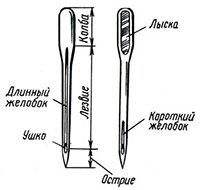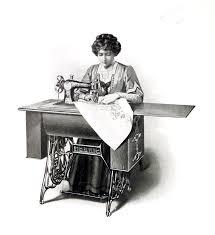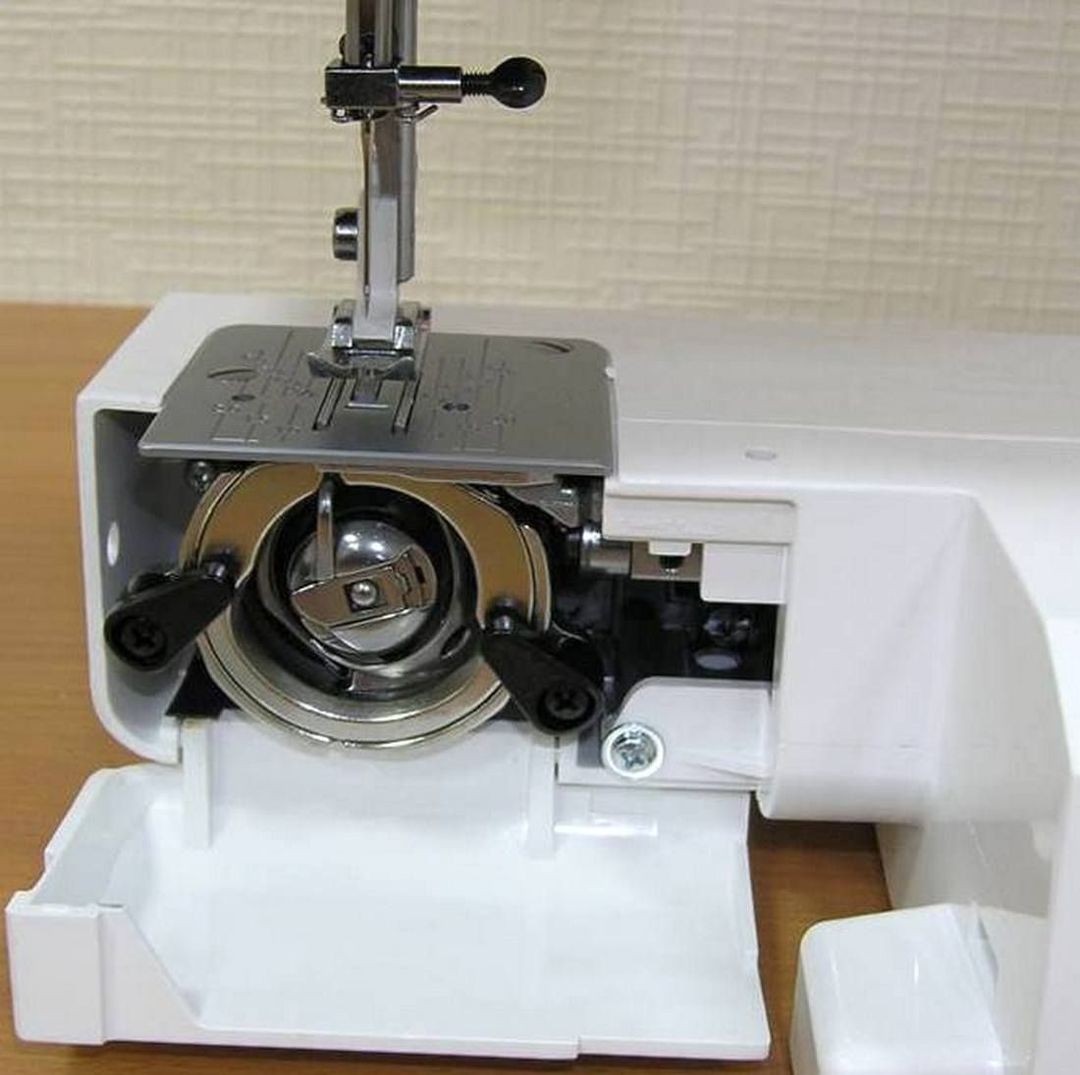 The question of the correct installation of the needle in the sewing machine worries most beginner needlewomen. And this is understandable, because the consequences of an error will be a torn thread, spoiled material and wasted time. To prevent this from happening, and working at the typewriter brings pleasure, you need to know a few simple rules for working with the needle and its design. This will help to quickly and efficiently make a replacement and continue to do what you love.
The question of the correct installation of the needle in the sewing machine worries most beginner needlewomen. And this is understandable, because the consequences of an error will be a torn thread, spoiled material and wasted time. To prevent this from happening, and working at the typewriter brings pleasure, you need to know a few simple rules for working with the needle and its design. This will help to quickly and efficiently make a replacement and continue to do what you love.
How the needle works
The content of the article
- How the needle works
- Types of needles for household sewing machines
- How to insert a needle into a sewing machine
- Installation Quality Check
- The consequences of improper needle installation
The needle of a sewing machine is a simple but ingenious invention that has not changed for nearly two centuries. Due to its design, it easily pierces the fabric and passes the thread into the hole, after which it returns. This results in a loop on the opposite side of the material.

Knowledge of the needle device and the principle of operation is necessary in order to understand how to install it correctly and which side. The design of this part is as follows:
- Thickened upper part. This is a flask that attaches to the needle holder.
- Kernel. The main part along which the groove for the thread runs from top to bottom.
- Point. The working part in which the hole is made is the eye. It also has a small groove, it is located on the opposite side from what is on the rod.
Such a device allows the needle to easily pierce the material and pass a thread through it. In order for this to happen without problems, the long groove located on the shaft must have an appropriate depth and the point must be well sharpened.
Types of needles for household sewing machines
Choosing the right needle is the first thing to take care of. So that it does not cause skipped stitches and defective stitching, you need to select it not only in accordance with the material, but also for the thickness of the thread. In addition, if you make the wrong choice of needles, then it can easily break.

IMPORTANT! When buying a needle for your household sewing machine, pay attention to the presence of a flat (special cut) on the flask. It is designed for error-free installation of the part in the needle holder.
Marking on the packaging will also help you make the right choice. They are designated by numbers 60–120 (European) or 8–21 (American numbering). In order not to confuse buyers, usually both are used:
- 60/8 - 100/16 with a rounded eye are suitable for woolen fabric;
- 90/14 - 110/18 sharp are intended for skin;
- 90/14 - 110/18 with a small ear and a thick shaft do well with denim and other thick fabric;
- 60/8 - 120/20 with a slightly rounded point are considered universal.
There are several types of needles for decorative seams or demanding materials. Self-refueling samples can also be found on sale.
How to insert a needle into a sewing machine
The first thing to do for a proper installation is to make sure that you select the right needle. For household machines, it should have a saw cut in the upper thickened part (flask). Its presence reduces the possibility of error to a minimum. Remember to also see that the groove in the shaft matches the thread that will be used. This can easily be done by attaching it to the groove, and seeing if it looks too hard.

ATTENTION! Remember to disconnect the sewing machine from the power supply before changing the needle. Be sure to follow the safety rules.
After you have made sure that the needle is selected correctly and armed with a screwdriver, you can proceed with the replacement:
- Set the needle holder to the upper position.
- Loosen the fixing screw with a screwdriver.
- Remove the old needle. First, it is advisable to see how it was installed.
- Insert a new one into place. In household versions of sewing machines, the needle is attached with a groove to the right.
- While holding the part, gently tighten the screw with a screwdriver until it is fully fixed in the needle holder.
Done, the replacement is made, it took only a couple of minutes of time and a screwdriver for this. The main thing is not to forget to remove the old needle away from children and animals.
Installation Quality Check
In order not to spoil the material, you must first check whether the replacement has been made qualitatively. Otherwise, the stitches will be uneven, or the part may break. First of all, take a flap of unnecessary material, and check the quality of work on it.

Curves and stitches of different lengths indicate uneven installation of the part in the needle holder. To fix this, loosen the screw and align the needle. Remember to turn off the power of the sewing machine first. Having corrected and clamped the part, check its operation again. Thus, you need to achieve a high-quality and even seam.
The consequences of improper needle installation
If the needle installation was not done correctly, most likely it will not work to continue. A curved part, the presence of rust on it, the wrong choice or the wrong installation will lead to the following consequences:
- constant breakage of the thread;
- curves and different lengths of stitches;
- broken needle.
These problems can occur not only if installed incorrectly. You also need to make sure that the needle matches the material and thickness of the thread.
Replacing the needle yourself is not such a difficult task. If you take it seriously, choose the right tool and correctly replace it, working with a sewing machine will be fun. You can please yourself with new, exclusive, self-made clothes at any time.


